
Five years before the 1979 revolution transformed Iran, Shah Mohammad Reza Pahlavi, a pilot who had earned his wings in 1946 flying a British Tiger Moth, arranged for Iran to purchase eighty Grumman F-14A Tomcats and 633 Hughes AIM-54 Phoenix missiles for $2 billion. The Iranian deal is credited with saving the F-14 programme, which Congress had stopped funding, and by some with saving the Grumman Corporation from bankruptcy. As a consequence Iran became the only country besides the United States to fly the big fighter. In the 1970s Iran needed an air superiority fighter that could end incursions into its airspace by Soviet MiG-25Rs, which flew too high for the IIAF’s F-4s and F-5s, but the F-14 was more than up to the job. By 1979, 120 pilots and radar intercept officers of the Iranian Imperial Air Force (IIAF) had been trained in the United States and Iran, with 100 additional personnel still in training. Simultaneously, maintenance technicians were trained, at Pratt & Whitney and Hughes, on the engines, avionics, and weapons systems.
The Iran–Iraq War was an armed conflict that commenced on 22 September 1980, when Iraq invaded Iran, and ended on 20 August 1988, when Iran accepted the UN-brokered ceasefire. It was widely reported in the press at the time as ‘The Gulf War’, a name subsequently re-deployed after 1991.
This story is from the {{IssueName}} edition of {{MagazineName}}.
Start your 7-day Magzter GOLD free trial to access thousands of curated premium stories, and 9,000+ magazines and newspapers.
Already a subscriber ? Sign In
This story is from the {{IssueName}} edition of {{MagazineName}}.
Start your 7-day Magzter GOLD free trial to access thousands of curated premium stories, and 9,000+ magazines and newspapers.
Already a subscriber? Sign In
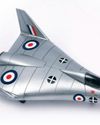
Mustard
BAC's Low Speed Research Vehicle
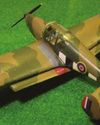
KOVOZAVODY PROSTEJOV (KP) 1 Was Monty's Triple'
Brian Derbyshire
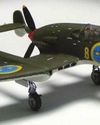
SPECIAL HOBBY SAAB J-21A Review
From the late 1930s and early 1940s, with thewar in Europe raging around them andedging ever closer to its borders, the Flygvapnet had ordered Seversky P-35A aircraft, alongside Vultee Vanguards, but only sixty of the former and none of the latter were received.
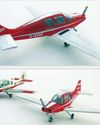
VFR MODELS Beagle B.121 Pup
This is the first 3D printed kit I have come across and it is really rather fine.
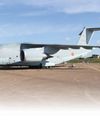
Hearts in the sky RIAT RETURNS
After a nearly three-year hiatus RIAT returned to our skies with a hot show in every sense of the word. SAM’s Mike Verier and Ray Ball were there.
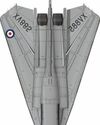
Colour Conundrum
A Cancellation Conundrum - The RAF F-111s That Might Have Been Part 1

COPPER CAUDRON Caudron G.Ill in 1/32
Copper State Models have carved a name for themselves in the last few years producing high quality plastic kits of World War One subjects.
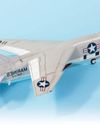
Academy RF-8A Crusader Conversion in 1/72
USMC squadron VMCJ-2 used six RF-8As during the Crisis (designation F8U-1P until September 1962), with others held in reserve, two flying out of Guantanamo Bay, and four out of NAS Key West.
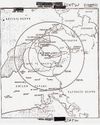
The Cuban Missile Crisis
Modelling US reconnaissance assets in 1/72 Part 2: The Nuclear Confrontation
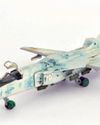
UKRAINIAT striker
The Sukhoi Su-24 is an all-weather attack aircraft capable of supersonic speeds and characterised by its side-by-side pilot/navigator seating and its variable geometry wing.